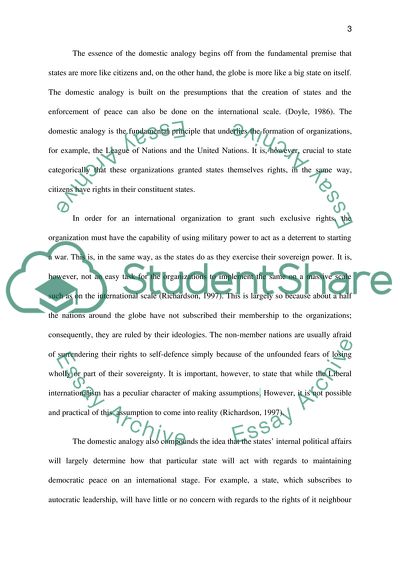Cite this document
(The Domestic Analogy in the Context of Liberal Reform Program Literature review, n.d.)
The Domestic Analogy in the Context of Liberal Reform Program Literature review. Retrieved from https://studentshare.org/politics/1855953-what-is-the-domestic-analogy-of-the-liberal-school-of-thought-discuss-in-context-of-the-so-called-liberal-reform-programme
The Domestic Analogy in the Context of Liberal Reform Program Literature review. Retrieved from https://studentshare.org/politics/1855953-what-is-the-domestic-analogy-of-the-liberal-school-of-thought-discuss-in-context-of-the-so-called-liberal-reform-programme
(The Domestic Analogy in the Context of Liberal Reform Program Literature Review)
The Domestic Analogy in the Context of Liberal Reform Program Literature Review. https://studentshare.org/politics/1855953-what-is-the-domestic-analogy-of-the-liberal-school-of-thought-discuss-in-context-of-the-so-called-liberal-reform-programme.
The Domestic Analogy in the Context of Liberal Reform Program Literature Review. https://studentshare.org/politics/1855953-what-is-the-domestic-analogy-of-the-liberal-school-of-thought-discuss-in-context-of-the-so-called-liberal-reform-programme.
“The Domestic Analogy in the Context of Liberal Reform Program Literature Review”. https://studentshare.org/politics/1855953-what-is-the-domestic-analogy-of-the-liberal-school-of-thought-discuss-in-context-of-the-so-called-liberal-reform-programme.


